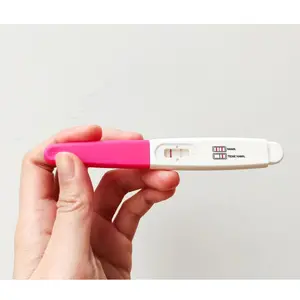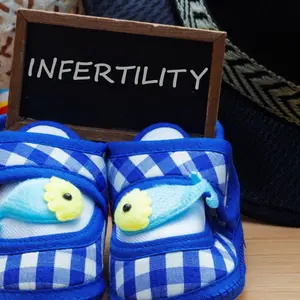

Integrative Health and Wellness

Integrative Health and Wellness
Transcutaneous Electrical Acupoint Stimulation to Improve IVF Outcomes
For countless women navigating the in vitro fertilization (IVF) journey after age 35, the process may feel overwhelming. According to the U.S. Centers for Disease Prevention and Control, traditional IVF success rates decline sharply with age. Women under 35 have a success rate of about 55% per cycle, but that rate drops to just 8% for women over 40 after the first cycle, leaving many feeling helpless despite significant financial and emotional investments.
A 2020 systematic review and meta-analysis published in Frontiers in Public Health evaluated whether transcutaneous electrical acupoint stimulation (TEAS) was effective and safe to improve the pregnancy outcomes of women undergoing IVF embryo transfer (IVF-ET). TEAS is the non-invasive application of electrical stimulation to specific acupuncture points on the body using surface electrodes. TEAS can be performed by healthcare providers trained in both acupuncture and electrical stimulation, or it can be used by individuals at home under the guidance of a healthcare provider.
The researchers examined 19 randomized controlled trials involving over 5,300 participants, which were all conducted in China. The analysis concluded that TEAS may be an effective and safe treatment for women undergoing IVF-ET to improve pregnancy outcomes. No serious adverse events associated with TEAS were reported, and there were no significant differences in early miscarriages or birth defects for those using TEAS. While the results are promising, it is important to understand that, according to the researchers, that the quality of the evidence supporting their findings is limited and that additional high-quality trials are needed. However, they did find moderate quality evidence for live birth rates, which was considered the most important outcome.
Specifically, the researchers found the following improvements in participants using TEAS while undergoing IVF-ET:
- High-quality embryo rates increased by 9% (high-quality embryo rate is the proportion of embryos produced during IVF that are considered to have a good or excellent chance of implanting and resulting in a successful pregnancy)
- Clinical pregnancy rates increased by 42% (clinical pregnancy rate is the percentage of cycles in which a pregnancy is confirmed via ultrasound visualization, indicating the success of embryo transfer and implantation)
- Biochemical pregnancy rates increased by 45% (biochemical pregnancy rate is percentage of pregnancies with a positive pregnancy test through a blood or urine test before a gestational sac can be seen on ultrasound)
- Live birth rates increased by 42%
What Makes TEAS Different?
Unlike traditional acupuncture that requires regular clinic visits and needle insertion, TEAS offers several compelling advantages:
- Convenience: The TEAS is painless, non-invasive, and convenient, which is easily accepted by patients. It can be performed up to six days per week from home, eliminating the stress of scheduling appointments around an already demanding life.
- Comprehensive Approach: TEAS works by regulating the neuroendocrine system and blood flow of reproductive organs, addressing fertility challenges at their root cause, rather than just treating symptoms.
- Evidence-Based Protocol: TEAS works by targeting specific acupoints that have been used in Traditional Chinese Medicine for thousands of years. The research shows TEAS was administered for 30 minutes per session in each study except for one study that used 20-minute sessions, providing clear guidelines for treatment duration.
Dr. Susan Fox is a doctor of acupuncture and Chinese medicine who integrates Traditional Chinese Medicine and functional medicine in the treatment of fertility, pregnancy, and other women’s health issues. Dr. Fox is also the host of KnoWEwell’s monthly online webinar series Your Fertility Health and Best Prep for Pregnancy event and expo.


 By
By





